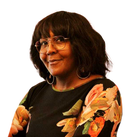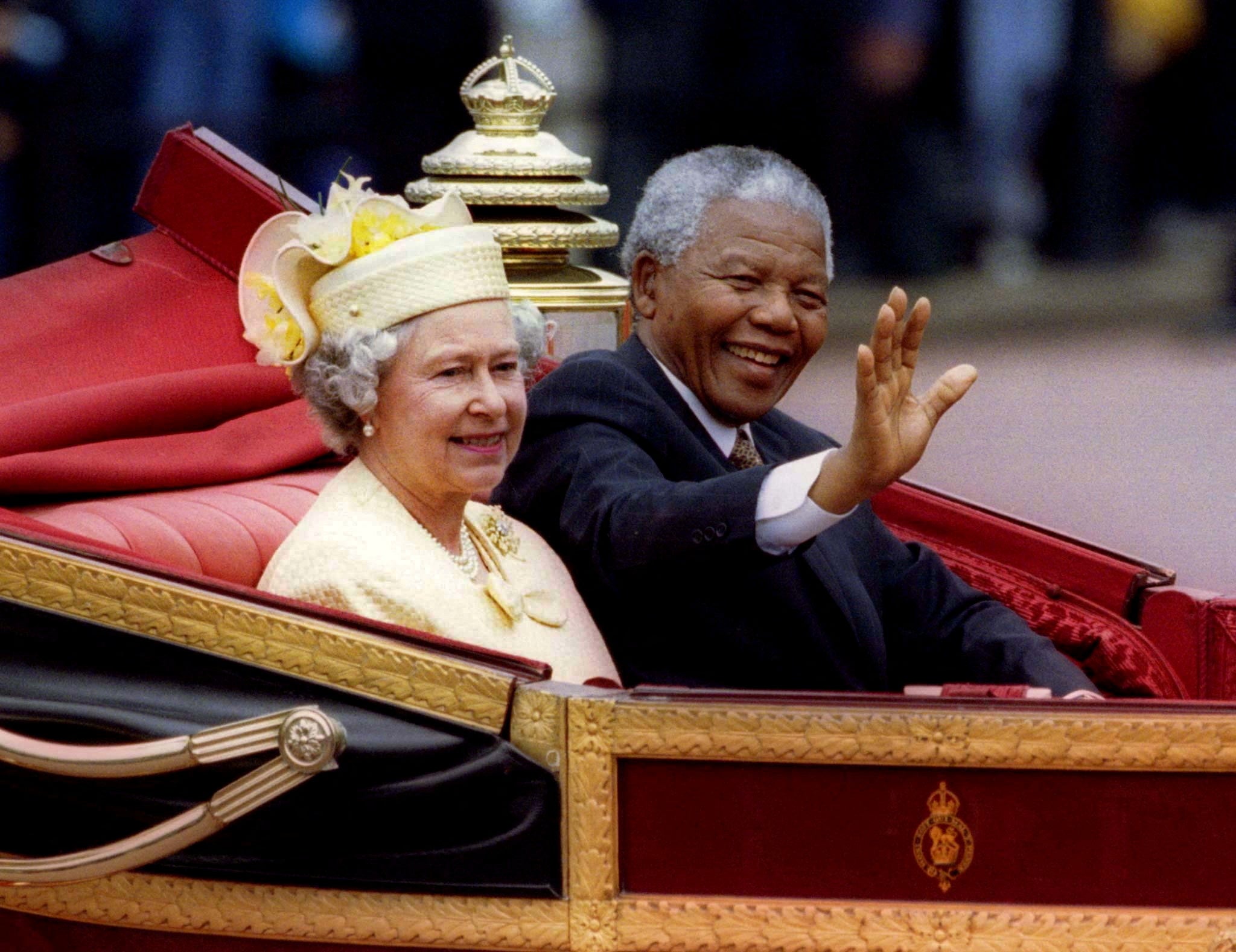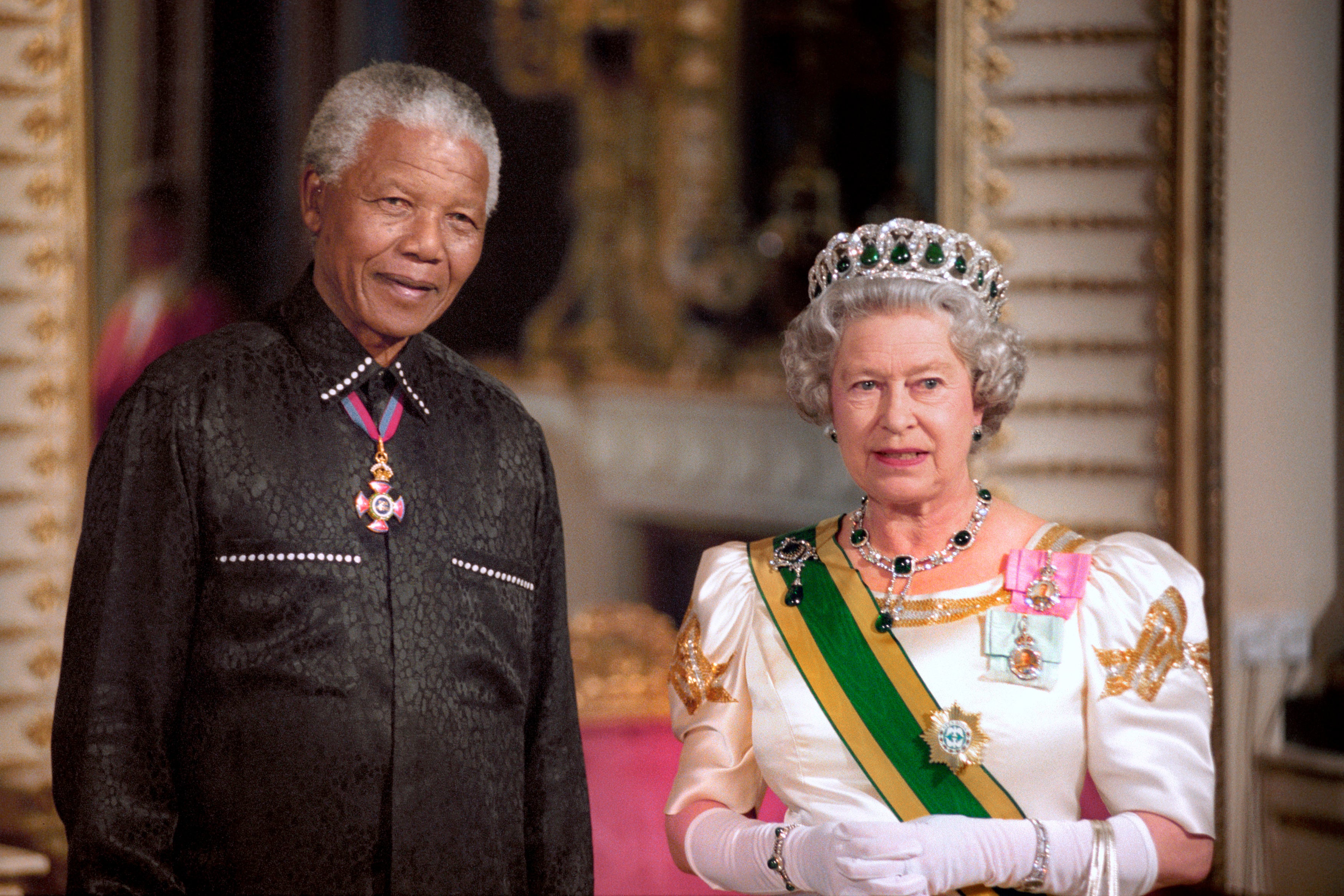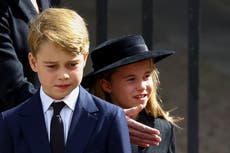The Queen’s friendship with my grandfather showed the strength of her principles
It is a legacy I hope her successor, King Charles III, can continue, writes Ndileka Mandela


If there is one truth about the world, it is that it doesn’t stand still. A great leader is not someone who refuses to acknowledge change. A great leader is someone with the ability, confidence and courage to demonstrate deep principles in changing circumstances.
I hold in my heart today two truths. The first is that the legacy of British imperialism is a painful, even awful one in many places. But I also mourn with your country and your people; Her Majesty Queen Elizabeth II was a leader of ability, confidence and courage. Not only that, but Her Majesty and Nelson Mandela – my grandfather – held each other in such high regard that they were on first-name terms.
This, apparently, is a breach of royal protocol. But it is also one that I love, precisely because the exception underscored the remarkableness of their closeness. It is a legacy I hope her successor, King Charles III, can continue.
In fact, he must. When the mourning is formally ended, when he asks himself what his role in the world can and must be, I would invite King Charles to reflect on the closeness of his mother and my grandfather, and what that means for the possibility of principled leadership in the world.
Queen Elizabeth ascended the throne in 1952, while in Kenya. The link with Africa must have stuck, because in her lifetime she visited more than 20 African countries. That, in turn, may have deepened her horror at the legacy of racism and the fact of apartheid.
Some speculate that tension between the Queen and prime minister Margaret Thatcher had something to do with Thatcher’s refusal to act against apartheid. Moreover, we South Africans admired the Queen because she refused to visit our country during apartheid, and because she rushed to endorse my grandfather after the system fell.
That is why she and my grandfather became so close: it was not where they came from, but where they wanted the world to go that drew them together. They recognised that, as leaders, they had a special responsibility to do what they could to take their countries and their people in the right direction.
And at a time when political processes and leaders are viewed so sceptically, the value of such leadership increases enormously: do as we do, not as we say. King Charles III confronts a difficult landscape, for sure. With sharp polarisation wrecking many democracies, and global threats like the climate crisis proving increasingly dangerous, one might fear the worst.

But that said, it is precisely the office Charles III represents – the authority he can and cannot bring to bear – that makes him so important right now. Like his mother before him, of course, King Charles holds an oath to the Church of England, standing as defender of the faith and a protector of faiths. For him, faith traditions have always been a matter of deep attraction. Can he transform that interest into the kind of outreach the world desperately needs?
There are precedents before him, of course, like the late Bishop Desmond Tutu, who incidentally also came out of the Anglican Church. There are examples around him now, as well: Pope Francis seeks to inspire the world to heal itself, to push us to confront our responsibility to God’s creation, and to act humbly in the world.
Other faith leaders, such as the Aga Khan, are dedicated to building bridges with other faith communities, or enabling education in impoverished communities – especially girls’ education. Another Islamic cleric, Dr Abdulkarim al-Issa, has taken the organisation he leads, the Muslim World League, and made it a vehicle for dialogue across faiths.
To keep up to speed with all the latest opinions and comment, sign up to our free weekly Voices Dispatches newsletter by clicking here
King Charles has previously expressed admiration for other faith traditions, such as Islam. He has made building relationships with other faiths part of his work in the world – all the more valuable since Britain is increasingly diverse, including religiously. He is also a fierce advocate for the environment. With leaders such as the Bishop of Norwich, he might find ways to channel the authority of the monarchy to bring about a better world.
None of this means that Britain has not suffered a great loss, but another mark of great leaders is how they address the absence we confront in our lives. Queen Elizabeth’s friendships reveal who she was and what she wanted out of the world, and for the world. The mourners who gathered to see her off one last time reflect how deeply touched, moved, and fundamentally improved we all were by who she was.
Let us mourn without fear. For there is much work yet to be done. The honour of that burden falls to us.
Ndileka Mandela is a writer, social activist and the head of the Thembekile Mandela Foundation
Join our commenting forum
Join thought-provoking conversations, follow other Independent readers and see their replies
Comments


Bookmark popover
Removed from bookmarks